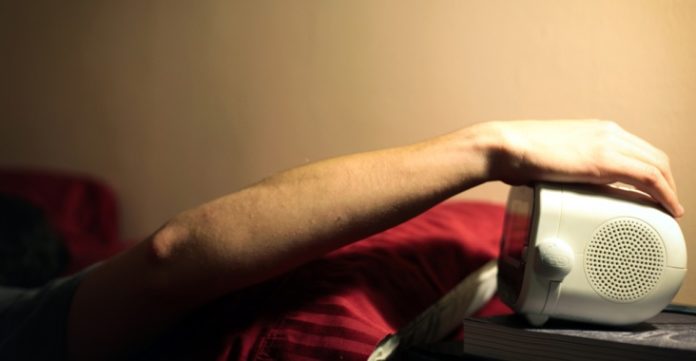
It’s long been known that teens who skip out on sleep have more trouble concentrating and tend to do poorly in school. But a new study suggests the effects don’t stop there, finding that sleep-deprived teenagers are also more likely to develop alcohol and drug problems.
The study, published online ahead of print in the journal Alcoholism: Clinical & Experimental Research, included teens who suffered from conditions like insomnia as well as those who simply weren’t getting enough sleep. Teenagers ages 14 through 16 who had trouble falling or staying asleep were 47 percent more likely to binge drink than their well-rested peers, the results showed.
Sleep problems were linked to even more issues with alcohol later on. Teens who had trouble sleeping when the researchers first checked in with them were 14 percent more likely to drive drunk and 11 percent more likely to have interpersonal issues related to alcohol a year later. And five years after that — when everyone was college-aged or older — those who had sleep issues in high school were 10 percent more likely to drive drunk.
About 45 percent of adolescents don’t get the recommended eight to 10 hours a night, polls show. Other studies have found that about one in 10 adolescents have trouble falling asleep or staying asleep almost every day, or every day, in the previous 12 months.
The new findings are based on data collected from 6,500 adolescents who were part of the larger National Longitudinal Study of Adolescent Health, which began tracking a group of adolescents in the mid-90s.
Sleep deprivation, impulse control, and addiction
The study adds to a growing body of research linking sleep difficulties to substance abuse problems. In past studies, sleep difficulties and insomnia among healthy adults have been shown to predict onset of alcohol use one year later, and increased risk of any illicit drug use disorder and nicotine dependence 3.5 years later. Research also suggests that insomnia is predictive of relapse among recovering alcoholics.
Similar findings have been reported in younger age groups, as well. For example, overtiredness in childhood is associated with lower response inhibition in adolescence, which in turn raises the risk of illicit drug-use in young adulthood. Overtiredness in childhood has also been found to directly predict the presence of binge drinking, blackouts, driving after drinking alcohol, and number of lifetime alcohol problems in young adulthood.
“Previous studies on adolescents were mostly drawn from high risk samples,” noted study co-author Dr. Maria M. Wong, professor and director of experimental training in the department of psychology at Idaho State University. “This study has added to the existing literature by establishing the relationship between two sleep variables — sleep difficulties and hours of sleep — and the odds of serious alcohol- and drug-related problems in a nationally representative sample.”
While it’s not exactly known how poor sleep increases the risk of addictive behaviors, research suggests that prolonged periods of wakefulness may adversely affect the prefrontal cortex — the brain region involved in regulating affect, attention, and complex cognitive activities. One recent study, for instance, showed that sleep-deprived subjects experienced a loss of functional connectivity between the amygdala and the medial-prefrontal cortex compared to controls. This is thought to compromise self-regulation, leading to difficulties with drugs, alcohol, and other addictive behaviors.
Parental intervention
Dr. Wong and her colleagues believe that parents can play a significant role regarding their adolescents’ sleep habits. “Parents need to understand their children’s sleep schedule, patterns, and habits,” said Wong. “If children have sleep difficulties or poor sleep hygiene, it is important for parents to talk to them and find out the factors that may be causing the problems.”
Parents could explain the importance of sleep to their children — for example, how sleep may affect the development of the brain and thus self-control and behavior. Parents could also help their children keep a regular sleep schedule and monitor/control their children’s activities before sleep by setting rules such as no video games or texting after a certain time at night, the researchers say.
“And remember,” added Dr. Wong, “when you monitor the sleep health of your adolescent, there can be two different issues: sleep difficulty and sleep insufficiency.”
